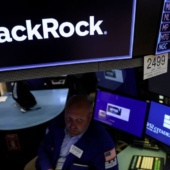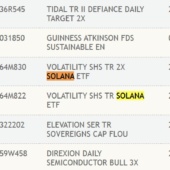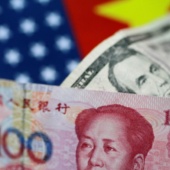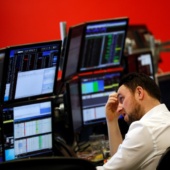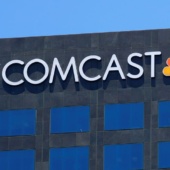Stocks notched their best week of the year as investors cheered President-elect Donald Trump’s economic agenda.
“Tax cuts are behind the rally … and in general, there is the perception that markets like Republican administrations, although certainly the performance for the past few years of the Democratic administration has not exactly been shabby,” Interactive Brokers’ Steve Sosnick explained to me on Yahoo Finance’s special election coverage.
The Dow Jones Industrial Average (^DJI) skyrocketed more than 1,700 points from Wednesday through Friday, closing the week up 4.6%. The S&P 500 (^GSPC) and Nasdaq Composite (^IXIC) surged to a record, while the Russell 2000 (^RUT) hit its highest level since November 2021.
But the market should be careful what it wishes for. Experts tell me as clarity emerges, a resurgence in inflation from trade tariffs and additional government spending could pose a risk to the market’s momentum and temper rate cuts from the Fed.
“The sharp spike [in the markets] is, to some extent, a reaction to the expectation of solid growth, deregulation, tax cuts … But the other part of that, of course, is that it can lead to greater inflation and wider fiscal deficits,” Sonal Desai, Franklin Templeton Fixed Income chief investment officer, told me on Catalysts.
Stifel’s Barry Bannister, who sees a downside risk of 5,250 for the S&P 500 a year from now, is keeping a close watch for a resurgence in inflation. S&P closed out the week above 6,000.
“If inflation proves resurgent … we suspect Chairman Powell’s last 12 months in office (May 2025 to May 2026) are a significant investor risk, magnified by the repercussions of the approaching 2026 US midterm elections,” Bannister wrote in a note to clients.
Truist co-chief investment officer Keith Lerner echoed the point on a new episode of the Opening Bid podcast (listen in below).
Deutsche Bank anticipates Trump’s fiscal, trade, and immigration policies could result in an upward adjustment to its inflation forecast. The team, led by Matthew Luzzetti, projects inflation could rise by roughly 0.5% in 2026 to about 2.5%, primarily due to the inflationary impact of tariffs.
Reports Friday that Trump asked Robert Lighthizer to return to his administration as US trade Representative could signal a more aggressive approach to tariffs. During Trump’s first term, Lighthizer played a key role in his escalating trade war with China, implemented tariffs on steel and aluminum imports, and helped renegotiate the US’s trade agreement with Mexico and Canada.


